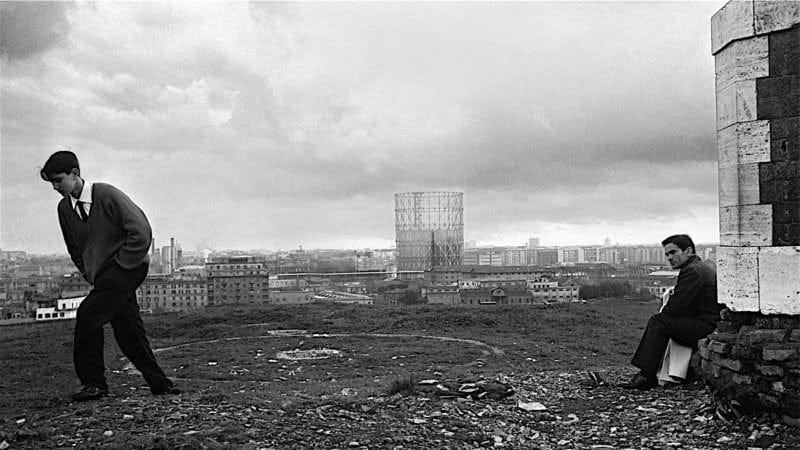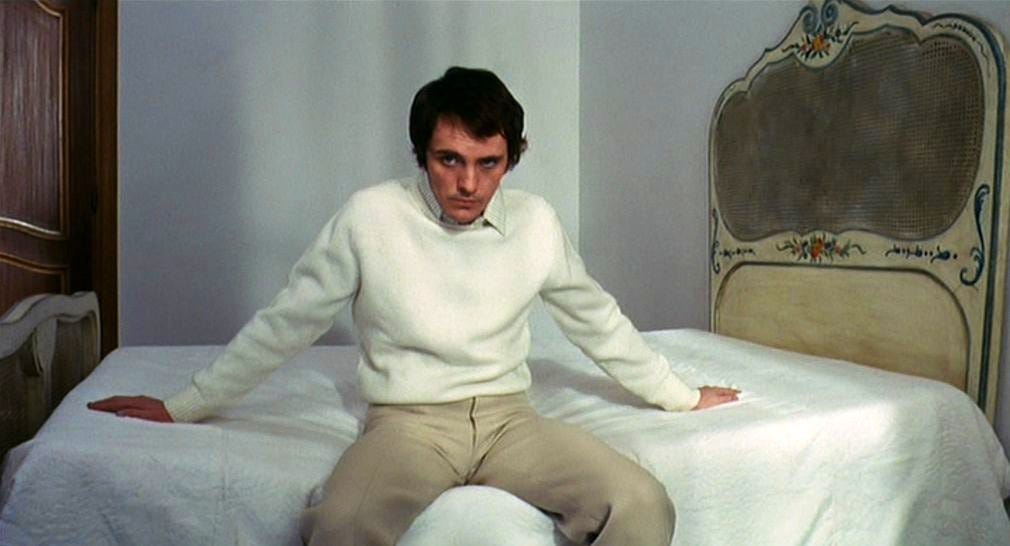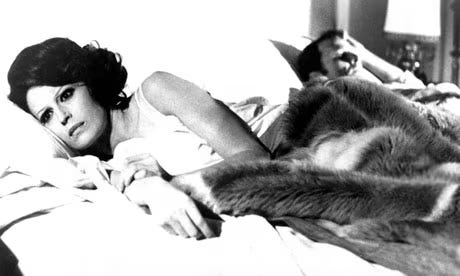Paolo Pasolini's Theorem, Modern Satire, and The Point Is The Question
The films of Paolo Pasolini would not be made today. Does subversive film have a place in today's society?
Ok, so this is not a newsletter that only sends endless emails about the business.
When I talk about the future of film… or the future of the film industry, that often means examining the past for things that were done well… or less than well… and trying to emulate or fix them.
So I take liberties to send out my thoughts on little-known, often forgotten or very-known infamous directors and filmmakers who have changed the fabric of the film world.
Like my article Gustav Deutsch, Edward Hooper and The Impeccable Art of "Shirley".
That said, today I want to talk about Paolo Pasolini and his provocative film… Theorem.
Who Is Paolo Pasolini?
Pier Paolo Pasolini was an Italian filmmaker, writer, and intellectual, widely regarded as one of the most provocative and influential figures in 20th-century European cinema and literature. Born in 1922, he was a visionary whose work often explored the intersections of politics, culture, sexuality, and religion.
Pasolini’s films, such as Accattone (1961) and Theorem (1968), challenged the moral and social conventions of postwar Italy, blending neorealism with surreal, symbolic narratives. He also had a powerful voice as a poet, essayist, and political commentator, constantly critiquing bourgeois society and championing the lives and stories of marginalized people, particularly the urban poor and working class.
Pasolini's political beliefs were complex, something I resonate with deeply at this point in history. He critiqued the commodification of culture under capitalism, warning of the cultural homogenization and spiritual emptiness it fostered.
He was a vocal critic of modern consumerism.
He saw the rise of the "technocratic" society as an erosion of genuine human connection. Politically, Pasolini was anti-authoritarian, opposing both the conformist left and the capitalist right. His personal and artistic life often defied conventional morality, embracing the radical freedom of sexual expression and pushing boundaries in ways that made him both controversial and revered.
And Then There Was Theorem…
Pier Paolo Pasolini’s Theorem is an unforgettable film that, even today, holds a unique power. It’s both mysterious and bold, blending surreal storytelling with a sharp critique of the upper-class lifestyle.
Premise Of The Film
Theorem focuses on a well-off Italian family whose stable, predictable lives are suddenly disrupted by the arrival of a mysterious stranger, played by Terrence Stamp. This Guest enters their home, seduces each family member, and then leaves, throwing them into chaos. On the surface, it’s a story about seduction, but underneath, it digs into themes of class, identity, and spirituality. Pasolini shows that beneath the comfort and wealth of this family lies a hollow, empty existence, and the arrival of the Guest forces them to confront the darker truths about themselves.
Themes of Spirituality, Sexuality and Desire
One of the standout aspects of Theorem is how it ties its social critique to a deeper, almost spiritual message. The Guest could be seen as a divine or supernatural figure offering the family either salvation… or destruction. This character forces the family to face their own emptiness, pushing them into an emotional and spiritual crisis.
This theme of shaking up the lives of the privileged (and a complete disregard for moral implications) can be seen in modern films like Yorgos Lanthimos’ Kinds of Kindness and The Favourite. These reflect Pasolini’s style, using strange and absurd stories to critique the upper class.
Lanthimos, like Pasolini, enjoys breaking down the seemingly perfect surface of privileged lives to reveal the confusion and insecurity underneath.
Another standout point is how Pasolini handles desire and sexuality. In the film, sexuality isn’t just about pleasure; it’s a way of breaking down social rules and shaking up people’s lives.
Modern films like Italian director Luca Guadagnino’s Call Me By Your Name (2017) and French auteur Celine Sciamma’s Portrait of a Lady on Fire (2019) explore the idea of desire in deep and complex ways, continuing Pasolini’s tradition of using sexuality as a force that challenges social norms. These films highlight how desire can be a disruptive, transformative experience and an important element to exploring the human experience.
However, one major difference between Theorem and more recent films, is how Pasolini embraces ambiguity.
The Point Is To Question, To Provoke…
He leaves much of the story open-ended, allowing viewers to interpret the Guest’s intentions and the characters’ fates on their own. This open-endedness is rare in modern films, which often feel the need to explain everything clearly. Pasolini trusts the audience to sit with the mystery, and that’s part of what makes Theorem so powerful.
In many ways, Theorem stands out because it refuses to fit neatly into any category. It’s part drama, part satire, part spiritual exploration. This playfulness with form and meaning is what makes it feel timeless. Today, filmmakers who blur the lines between genres and question societal structures are still following in Pasolini’s footsteps.
Theorem invites us to question, provoke, and reflect on the deeper layers of life—a message that feels just as relevant now as it did in 1968.
Watch the trailer:







